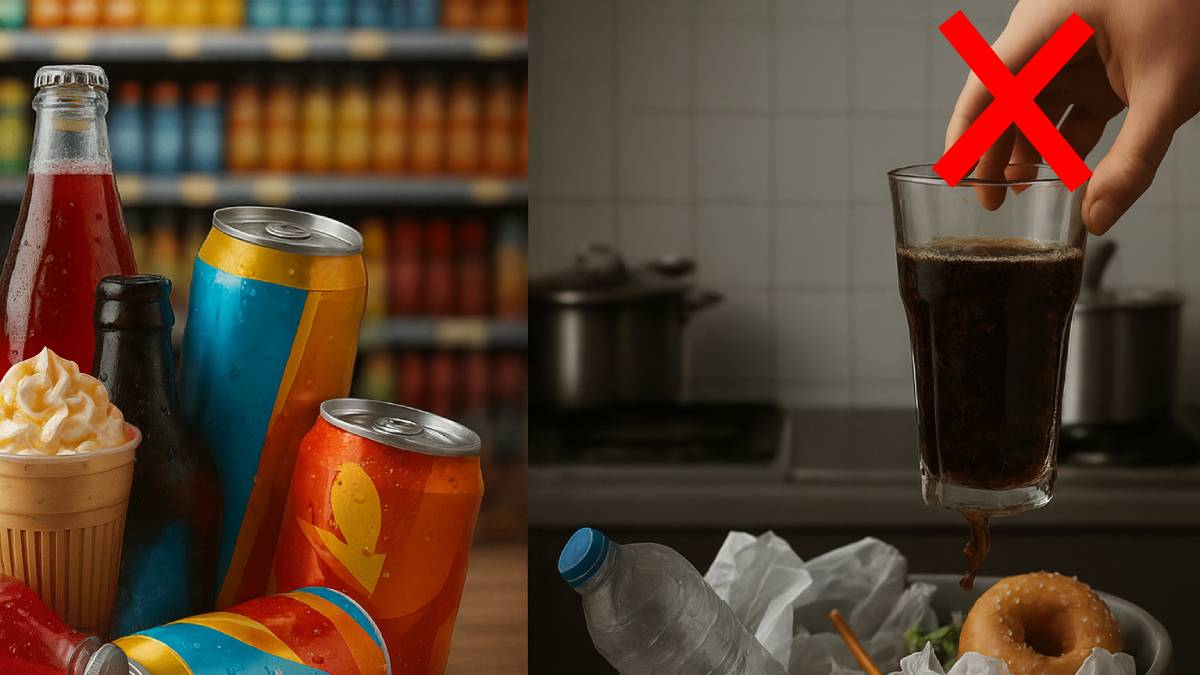Recent scientific studies are sounding the alarm on popular drinks, challenging the notion that we know what's safe to sip. From seemingly harmless diet sodas to ubiquitous energy drinks, the evidence links these beverages to alarming health risks, including liver disease, kidney damage, heart strain, and even microplastic contamination.
Here is a breakdown of the top offenders you should consider cutting from your diet, based on major 2025 research:
1. The Diet Soda Deception
Health ThreatKey Findings (2025 UK Biobank Study)
Fatty Liver DiseaseConsuming just one can daily may increase the risk of nonalcoholic fatty liver disease (NAFLD) by 60%.
Metabolic DisruptionArtificial sweeteners are linked to altering the gut microbiome, disrupting satiety signals, and triggering insulin release, which can enhance cravings for sweet foods.
Mortality RiskDiet beverages are associated with a heightened likelihood of dying from liver-related causes.
Takeaway: This research directly challenges the long-held belief that diet beverages are a healthy alternative to sugary drinks.
2. Sugary Sodas and Sweetened Beverages
Sugary drinks are a global health crisis, directly responsible for hundreds of thousands of deaths annually and millions of new disease cases.
Global Impact: According to a January 2025 study in Nature, sugary beverages are responsible for approximately 340,000 deaths annually from Type 2 diabetes and cardiovascular disease worldwide.
Disease Burden: These drinks were linked to 2.2 million additional diabetes cases and 1.2 million cardiovascular disease cases in 2020 alone.
The Kidney Threat (Dark Sodas): Dark-colored sodas contain phosphoric acid, which can lead to kidney stones and long-term kidney damage. The high sugar content also fuels obesity, hypertension, and diabetes—three major risk factors for poor kidney function.
3. The Triple Threat: Energy and Sports Drinks
These highly marketed beverages pose multiple, interconnected risks to your vital organs.
Heart Strain: A standard Monster energy drink contains close to 15 teaspoons of sugar. This combined with high caffeine can be particularly dangerous, creating conditions ideal for heart palpitations, especially in individuals with existing heart conditions.
Kidney Stress: High caffeine levels in energy drinks act as a diuretic, which can dehydrate the kidneys and dangerously elevate blood pressure.
Unnecessary Chemicals: Sports drinks often contain concerning amounts of food dye and artificial sugars that place undue stress on kidney function.
4. Hidden Heart Bombs (Specialty Coffee Drinks)
Even your favorite coffee treat can be a high-risk offender due to extreme levels of caffeine and sugar.
Example: Starbucks Frappuccino: Cardiologists warn that a single Frappuccino can contain nearly 100 mg of caffeine and a staggering 51 grams of sugar (about 13 teaspoons), creating the perfect storm for heart palpitations.
💧 The Healthiest Choice: WaterA 2025 UK study demonstrated the powerful impact of a simple switch: participants who moved from sugary or diet beverages to water reduced their liver disease risk by 13-15%. Water remains the healthiest beverage choice, as it doesn't affect metabolic processes and offers crucial hydration.

